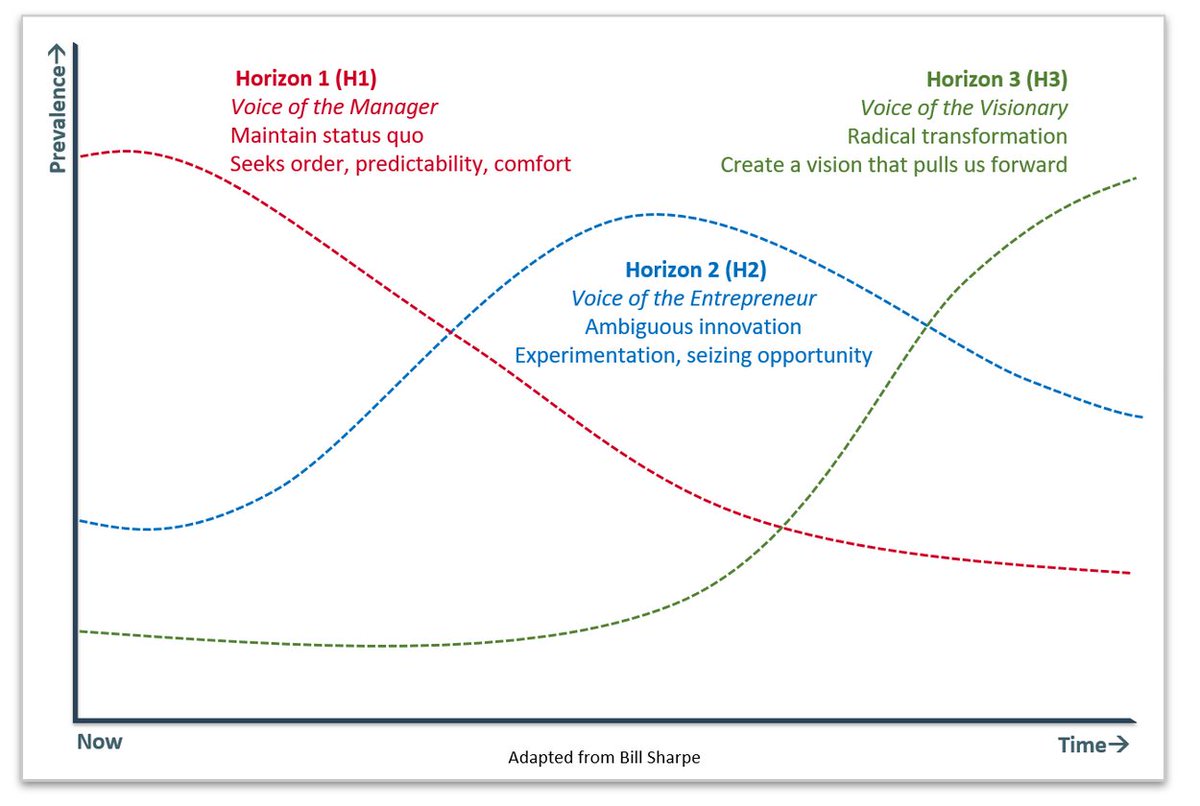Whenever you& #39;re at a crossroads and are wondering what to do next, here& #39;s how to think.
(a short thread on horizon based thinking)
(a short thread on horizon based thinking)
1/ The first thing to ensure is that you acknowledge that a lot of your decision-making will be driven by how you& #39;re feeling *right now* and not how you& #39;ll feel once you choose a path.
The need to escape can make us choose things that we won& #39;t like long term.
The need to escape can make us choose things that we won& #39;t like long term.
2/ The way to keep emotion-driven decision at bay is to *force* yourself to think in three horizons:
1. Short term goals
2. Long term goals
3. The path between the two
1. Short term goals
2. Long term goals
3. The path between the two
3/ Yes, I know this sounds trivial but far too often:
- We& #39;re either hyper-focused on short term and optimize our way to getting stuck into a local-optima
- Or, we& #39;re hyper-focused on the long term and forget that present actions is how we get to the future
- We& #39;re either hyper-focused on short term and optimize our way to getting stuck into a local-optima
- Or, we& #39;re hyper-focused on the long term and forget that present actions is how we get to the future
4/ To make a realistic yet ambitious plan, you need to think in three horizons.
This concept is crystallized on slide #11 in this deck by @yak_collective
#slide=id.p8">https://docs.google.com/presentation/d/1OfBuSq4SImE1Gq2EaAGCAlkwC8LZRCWx-7O_VOHJ5TI/edit #slide=id.p8">https://docs.google.com/presentat...
This concept is crystallized on slide #11 in this deck by @yak_collective
#slide=id.p8">https://docs.google.com/presentation/d/1OfBuSq4SImE1Gq2EaAGCAlkwC8LZRCWx-7O_VOHJ5TI/edit #slide=id.p8">https://docs.google.com/presentat...
5/ So essentially the first horizon you need to plan for is the short term, which means asking and answering questions like:
- What is not working for you lately? Why?
- What is working for you (or things you really enjoy or do well) that you wouldn& #39;t want to lose?
- What is not working for you lately? Why?
- What is working for you (or things you really enjoy or do well) that you wouldn& #39;t want to lose?
6/ The second horizon you need to plan for is the long term, which means asking and answering questions like:
- Given infinite time, resources, money, etc. what is that you want to be?
- What is the evidence in the present that you really want to be that in the future?
- Given infinite time, resources, money, etc. what is that you want to be?
- What is the evidence in the present that you really want to be that in the future?
7/ The third horizon is the connection between the two (and usually the most difficult).
Here you need to answers questions like:
- Where you can start investing today to get to the long term?
- What is that you want to retain as you make progress towards the long term?
Here you need to answers questions like:
- Where you can start investing today to get to the long term?
- What is that you want to retain as you make progress towards the long term?
8/ The point of this horizon-planning exercise is to force you to ask enough questions so that you& #39;re neither deciding because of "my-present sucks" emotions or plan for unrealistic "pie-in-the-sky" visions that won& #39;t happen.
9/ That& #39;s it!
Hope you like it :)
This planning is useful both in business and life. If you try it, let me know how it goes for you.
Hope you like it :)
This planning is useful both in business and life. If you try it, let me know how it goes for you.

 Read on Twitter
Read on Twitter


